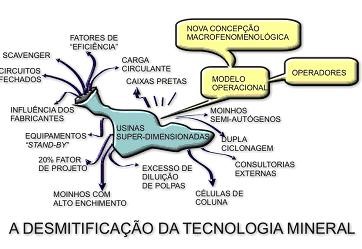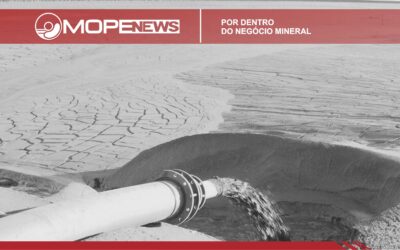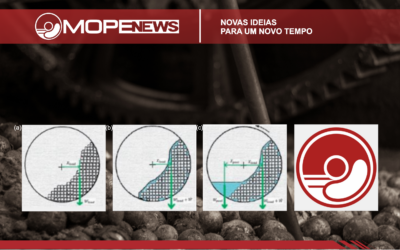Tailings: The new normal?ㅤㅤㅤㅤ
In a situation of scarcity of new mining projects, the major suppliers of machinery, spare parts, and inputs bet their chips on the reprocessing of the tailings. It is no longer just filtering and stacking. Recently, news has been circulated pointing out that there is a “hidden treasure” in the tailings. In any tailing. A new “El Dorado” with rare earths, gold, platinum, and a series of high value minerals or metals.
How about that? Will we grind and process it all over again?
It would be like a “Scavenger” of the whole plant. A bonanza festival for the billionaire market of suppliers that orbits around the indebted mining companies.
For those who don’t know, Scavenger is the avoidable rework of something incomplete or badly done. It is to spend more CAPEX and OPEX benefiting the waste of an incomplete unitary operation, to see if some additional useful thing comes out. There are plants that, instead of discarding a large mass of waste in a well-executed Rougher stage, extract from this operation only a small and hasty flow of rich concentrate to continue spending money on the apparent “exploitation” of the major part of the flow of tailings.
In the plants, circulating loads are accumulated, recycling hundreds of tons of hard and abrasive rejects for several times, spending more energy and eating liners and grinding bodies. The circulating loads, the Scavenger stages and other mining practices make the mining companies spending more to produce the same, transferring the gains to the global financial system and large suppliers.
The Operational Model developed by MOPE points to the Selective Concentration as the best route for processing ores, especially those with low content. The application of these concepts could help in the demystifying of mineral technology and in the bursting of the CAPEX and OPEX bubble that currently suffocates operations.

Since the 1980s, along with the general globalization of markets and the financialization of the economy, mining companies have coexisted passively with their inefficiencies, which favors multinational suppliers. Mining, although there are fortunate exceptions, accumulates heavy debts, while others get rich. Those who lose out are the people of the country where this genuinely capitalist and global scheme operates, under the name of mining company.
As professionals of the area, we usually see that the problems mentioned above are neglected in the corporate environment of many mining companies. Instead, with the support from the communication media, such mining companies (of course there are honorable exceptions) seem to be more interested in spreading tangential news – aiming at improving their reputation before a public that is, mostly, unaware of the subject.

Alexis Yovanovic



